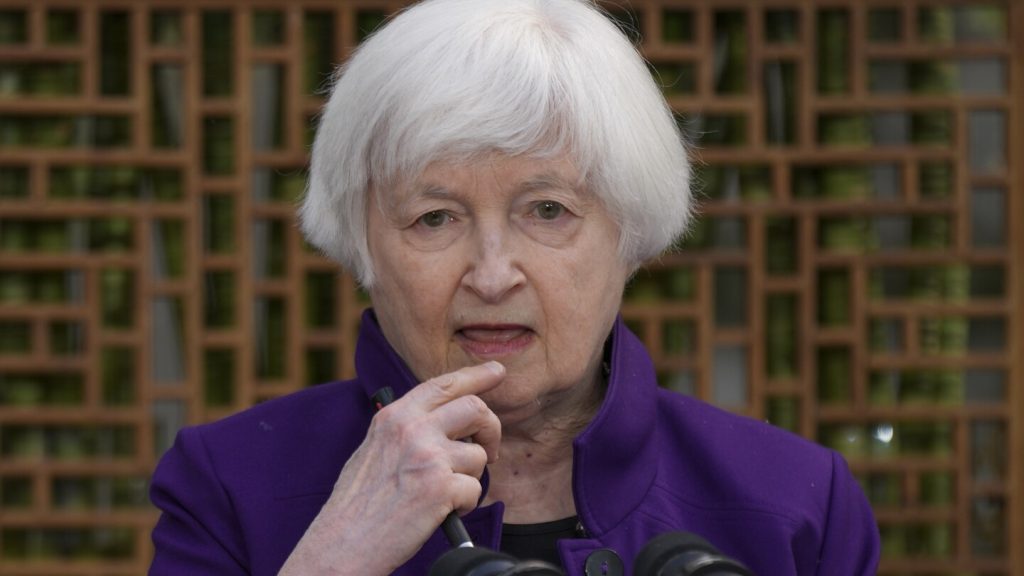Treasury Secretary Janet Yellen expressed concerns about the potential global economic impact of rising tensions in the Middle East, particularly in response to Iran’s recent missile and drone attack on Israel. Yellen emphasized the importance of using economic tools to counter Iran’s destabilizing activities in the region. The Biden administration is preparing new sanctions targeting Iran’s missile and drone program, as well as entities supporting the Islamic Revolutionary Guard Corps and Iran’s Defense Ministry.
High on the agenda of the IMF and World Bank’s spring meetings this week are the escalating tensions between Iran and Israel, with global economic implications. The White House national security adviser Jake Sullivan announced that the upcoming U.S. sanctions would aim to further weaken Iran’s missile and UAV capabilities. He also noted that allies and partners are expected to follow suit with their own sanctions. Efforts are underway to strengthen air and missile defense systems in the Middle East to counter Iran’s threats more effectively.
The conflict between Israel and Iran has been escalating during Israel’s military operations against Hamas militants in Gaza. The ongoing tensions have resulted in significant casualties and damages on both sides. The U.S. has imposed sanctions on various individuals and entities connected to terrorism by the Iranian regime and its proxies. Yellen mentioned that additional sanctions against Iran’s drone and missile programs, as well as militant groups like Hamas, the Houthis, Hezbollah, and Iraqi militia groups, are forthcoming.
The annual meetings are taking place amid other international conflicts, including Russia’s invasion of Ukraine, which continue to impact global financial stability. Yellen reaffirmed the U.S.’ commitment to working with international partners to hold Russia accountable for its actions, including discussions on potentially liquidating Russian Central Bank assets to support Ukraine’s reconstruction. The Treasury Secretary also highlighted concerns about Chinese industrial policies that threaten U.S. jobs and the global economy.
Yellen’s upcoming meetings with Chinese counterparts will focus on addressing issues related to Chinese industrial overcapacity and its impact on international trade. The U.S. and China have established economic working groups to facilitate communication and cooperation between the two nations, aiming to manage tensions and strengthen ties. Yellen’s discussions with Chinese officials will cover areas of potential cooperation, as well as frank conversations about disagreements and concerns. Efforts to manage economic challenges posed by China’s policies will be a key focus of the meetings.
In conclusion, the global economic landscape is facing significant challenges due to escalating tensions in the Middle East, conflicts in Ukraine, and trade disputes with China. The Treasury Secretary’s efforts to address these issues through sanctions, asset freezes, and dialogue with international partners demonstrate the U.S.’ commitment to maintaining economic stability and security. The outcome of the spring meetings of the IMF and World Bank will likely shape future economic policies and responses to ongoing global crises.


